Shelfie: João Azevedo
Curious by nature, João reads widely and listens closely—to books, to people, to the world around.
Dear reader,
Welcome to Shelfie, the only part of Binge-Read where we can shamelessly judge people by their bookshelves (just kidding, no shelf-shame here!). Each edition, a reader spills the [drink of their choice] on their reading rituals, turn-ons and turn-offs, the titles that rewired their brain and even their own writing—bonus points for messy nightstands and endless TBR piles.
Want to show us yours? Reply to this email.
SHELFIE: JOÃO AZEVEDO
THE MEET-CUTE
You spot him in the audio aisle of FNAC, head tilted, testing headphones not for bass but for warmth — João cares about tone. He’s the kind of guy who’ll rewind a movie just to appreciate a particular sound (well, I guess he would; wouldn’t he?). A sound editor by trade and a fiction-lover by nature, he reads like he’s tuning a frequency — picking up subtext, rhythm, mood. His world hums with stories. And he listens deeply. To everything. Even you, when you thought no one caught that sigh.
→ Connect with him on Substack
THE DATE
The candles are lit, the beverage is poured — now tell us everything. This is where we get to know your reader self: the first book you fell for, the weird little habits, the genres you ghost, and the stories that left a mark. No small talk — we want the good stuff.
What book made you a reader?
(The gateway drug — we all have one.)
I started by reading a lot of comics — Asterix, Tintin, Lucky Luke, Spider-Man. I think that’s where my love for reading began. I dipped into The Famous Five [by Enid Blyton] and the Portuguese classic series Uma Aventura, but they never quite stuck. It was Poeta, às Vezes from the Portuguese Profissão: Adolescente collection that truly turned me into a reader.
Have your reading tastes evolved over the years?
(How so?)
I started out drawn to books that explored adolescent struggles — drugs, friendships, love, the usual. Then I stumbled upon Sophie’s World [by Jostein Gaarder], which opened my eyes to new horizons beyond fiction. From there, I fell for Anne Rice’s vampires, Tolkien’s Middle-Earth, and the Harry Potter saga.
Then I discovered José Luís Peixoto with A House in Darkness and have since read all his works. He also led me to Saramago, Mia Couto, and García Márquez.
And in my late teens, I dove into Philip K. Dick’s science fiction, Heinlein’s Stranger in a Strange Land, and Asimov's Foundation. That’s when I realised I enjoy a bit of everything, as long as it grabs me.
These days, I gravitate toward shorter, more engaging books that transport me to different worlds.
And if it’s written in a way that captivates me, much like those rare people who can hold your attention when they speak, all the better.
Which five books shaped your life, your voice, or your worldview?
(Childhood favourites, heartbreak companions, rereads that haunt you — all fair game.)
Death with Interruptions by José Saramago
It was a book I started reading just a few days after losing my mother. It put death into perspective — the way I saw it and have come to understand it. In a way, it lightened its weight. And it solidified Saramago as the greatest writer for me, because this book, in particular, made me laugh during one of the darkest moments of my life.A House in Darkness by José Luís Peixoto
It showed me what literature can truly be, beyond the typical Aristotelian structure. And that you can write a novel where each chapter is both a poetic exercise and a piece of storytelling. It made me feel every pain, every anguish of the characters — the darkness we often feel, both inside and around us.Sidharttha by Herman Hesse
My best friend gave it to me after the death of my mother, at a time when I was utterly lost, both psychologically and emotionally. It introduced me to the story of Buddha through Hesse’s lens, where impermanence serves as a backdrop that encourages us to reflect on the world in every moment, and reminded me that life is lived in the now, and that every moment, no matter how abrupt or gentle, carries the potential for change. Change is constant in our impermanent world.Por Este Mundo Acima by Patrícia Reis
I appreciated the simplicity with which it portrays the relationship between an older man and a young man in a post-apocalyptic Lisbon. Without delving into extensive backstory or explaining what happened, it asks a fundamental question: what kind of relationships do we form as humans in a world stripped of civilisation? The writing style also resonated with me; it’s one of those books where, if I were the editor, I wouldn’t add or change a single comma. Everything is perfectly placed, balanced in just the right measure.The Myth of Normal by Gabor Maté
It’s a non-fiction book that distils much of Dr. Gabor Maté’s life’s work and completely reshaped how I understand the impact of trauma on our lives, from conception onward. It made me reflect on seemingly small details that are, in fact, fundamental to our social and human development. As a father, it profoundly changed the way I think and view the world. The root causes of most problems, the intersection of economics, politics, health, and class — it’s all there. A magnificent work that, in my opinion, should be required reading for every adult.
Describe your ideal reading scenario.
(Location, lighting, beverage, ambience — paint the full picture.)
I like to read alone. Reading is a solitary, deeply personal act — it lets us speak with the pages at our own pace, a pace that shifts from day to day. I prefer reading seated, with a light cast directly over the pages. Most often, I read at night, when silence begins to settle in.
Do you have a reading ritual or a weird habit?
(Must finish the chapter before closing it?)
I have a hard time abandoning books — it feels like I’m cheating on something. But I’ve been getting better lately, letting go of some reads in favour of others.
I like to read exactly what I feel like reading, something that matches the phase I’m in.
I always know I’ve picked the right one when the pages start flying by. I also enjoy reading certain books with a pencil in hand, underlining, and talking back to the text. Not all of them, of course — mostly non-fiction.
Which book do you press into everyone’s hands?
(Your go-to literary evangelist moment.)
Sidharttha by Herman Hesse. It’s a light read that makes you reflect on what truly matters. It teaches a lot, without ever being didactic. I find it transformative if you read it with the right maturity. And it grows with you.
I’ve read it three times, and each time I come away with a new understanding of what’s written there.
How do you treat your books — with reverence or reckless abandon?
(Are you a note-scribbler, dog-earer, spine-cracker, or pristine-pages kind of reader?)
As a rule, I try to treat them well. If they’re borrowed, there’s that added weight of responsibility — though accidents do happen: a coffee stain here, a smudge of chocolate cake there. But when they’re mine, I’m more relaxed.
I don’t dog-ear pages; if I really want to mark something, I’ll use those colored tabs. But I have enormous respect for books. Even when they’re underlined, they’re well looked after.
Let this not be used against me — I swear, the accidents were isolated incidents. Please still lend me your books.
Ebooks, audiobooks, paperbacks, hardbacks — where do your allegiances lie?
(Or are you format-fluid?)
Softcover or hardcover — that’s my preference. Reading on e-readers isn’t my thing.
I have a Kindle, but I rarely use it. Maybe I’m just not used to the system, or maybe it’s a full-blown paper addiction.
I get the practicality, sure, but holding a book in my hands is hard to replace. And as someone who works in audio, audiobooks don’t appeal to me either — I reserve what’s left of my auditory attention span for music.
What’s one genre or type of book you usually avoid — and why?
(No judgment. Well, maybe a little.)
Love stories steeped in doom or dripping with cheesiness — I get the appeal, no judgment, but they’re just not my thing.
What are you currently reading, and how’s it going?
(Be honest. We love a spicy DNF.)
The first four volumes of Ursula K. Le Guin’s Earthsea saga. I’m loving the world she’s created and the characters. I’m reading it in English, and sometimes I feel the language doesn’t flow easily — a mix of archaisms and my own lack of practice with literary English, especially older or less common expressions. That aside, I can see why it’s considered a seminal work in fantasy literature. The story is genuinely compelling, interesting, and captivating.
THE LATE-NIGHT TEXTS
We know your reading life — now spill on your writing one. Whether you’re a full-time scribbler, a sometime poet, or hoarding half-finished drafts like a dragon with a hoard of metaphors, this is your moment. What are you writing, what haunts you, and what quote gets you through chapter two?
Do you write, too?
(Secret novelist? Fanfic queen? Occasional journaler? Tell us everything.)
I’ve been writing poetry for many years and have always enjoyed playing with verse and words.
I wrote scripts during my film school days, and now I write weekly chronicles on my Substack. One day, I’d like to write a book. Maybe I’ll make that dream come true, maybe I won’t. We’ll see.
Has reading shaped the way you write — or vice versa?
(How does your inner reader and writer get along?)
Reading has always shaped my writing. I learn new ways of writing, of speaking to the page, and I blend them until they become my own. I believe that’s what literary creativity is: drawing from what already exists and transforming it into something that feels uniquely ours.
What’s one piece of writing advice that’s stuck with you?
(A quote, a rule you live by, or something you happily ignore.)
You can only learn to write by actually writing.
What are you working on now, or what was the first manuscript you ever finished?
(A glimpse into your current WIP, that drawer novel from 2012, or your first published book. We want the behind-the-scenes.)
In 2016, I wrote a book of poetry for my partner, Sofia. It’s a one-of-a-kind edition, collecting poems written over ten years. It’s a deeply personal work, one that only truly makes sense at home, but it’s something I’m incredibly proud of.
These days, I’m continuing to write new poems, and in time, I’ll gather them to see if they fit together into a cohesive collection.
THE FINAL SPREAD
This is where we bare it all — messy bookshelves, bedside stacks (with bedside manners?), cute reading corners and lovingly curated nooks. We’ve your confessions, now we want the visuals. Show us the spines you’ve dog-eared, the piles threatening to topple, and that one chair you always mean to tidy. Your shelf. Your story. Your final spread.
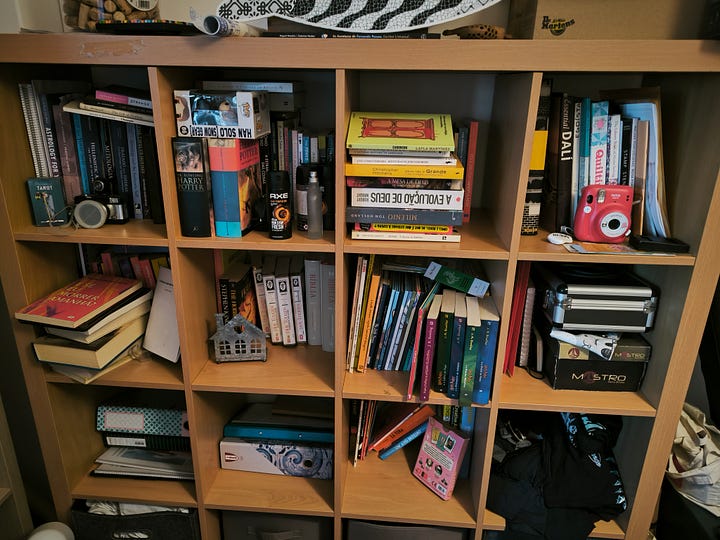
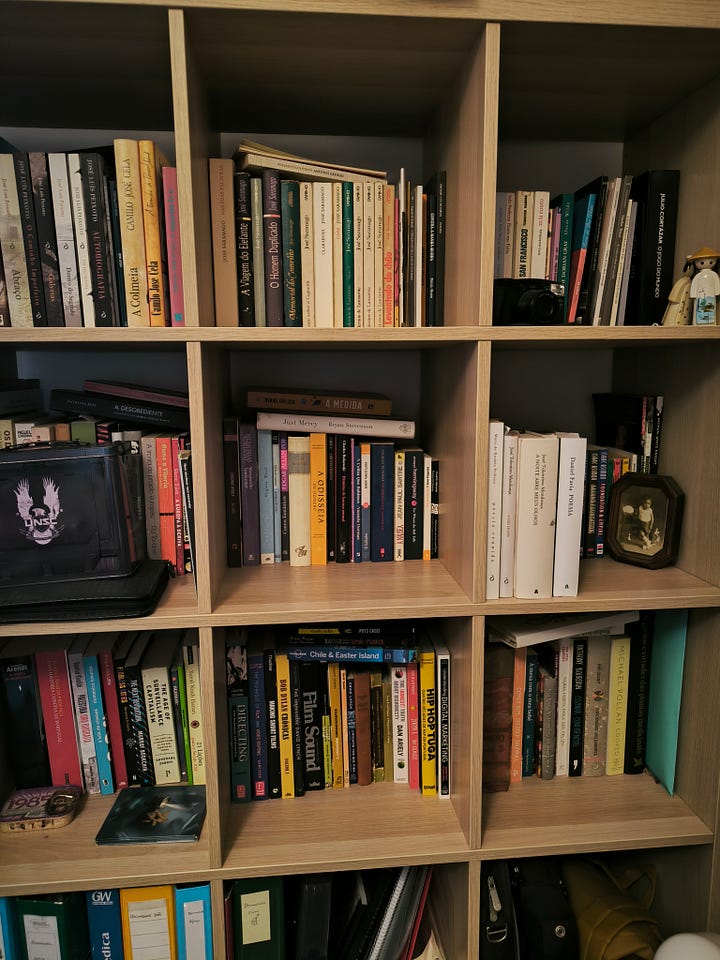
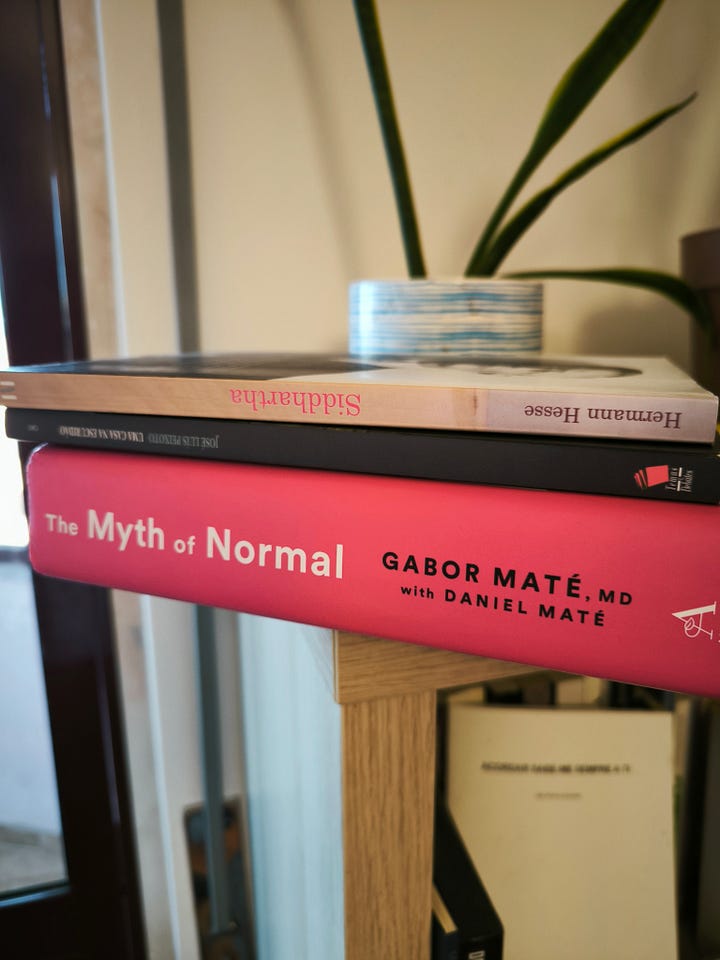
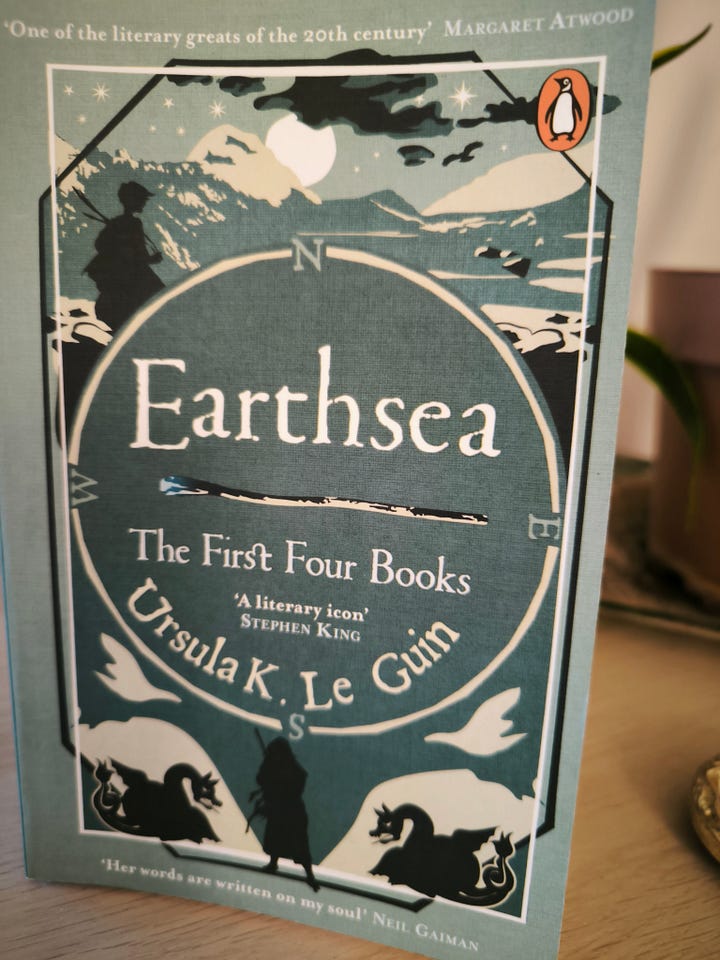
If you enjoyed this issue, don’t forget to spread the word — the more, the merrier! I’d also love to hear your thoughts, so feel free to reach out. It helps keep this community growing and thriving.
If you’d like to support my writing, here are a few lovely ways to do it (thank you so, so much):




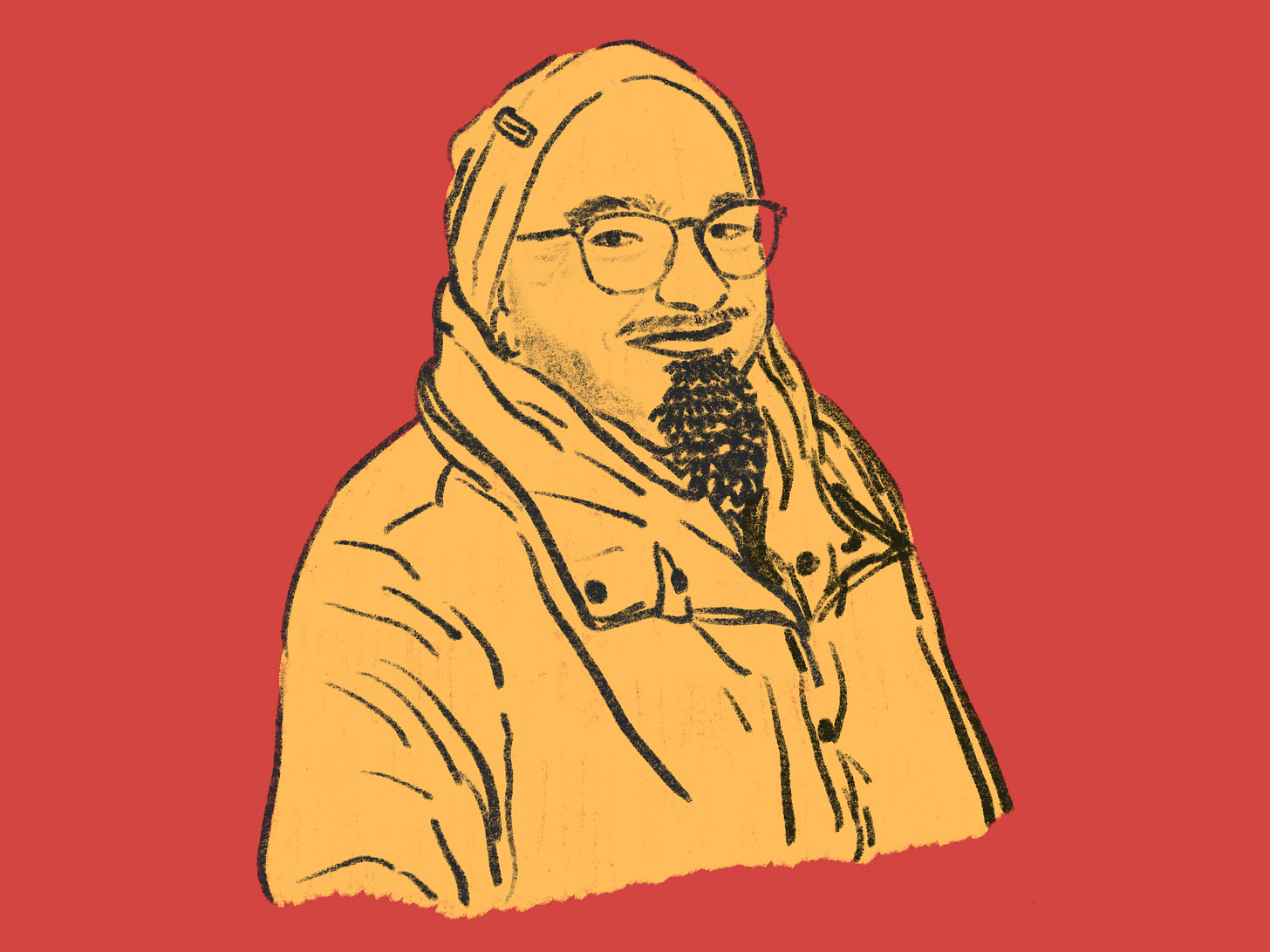


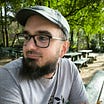
I really enjoyed being interviewed for this newsletter! Thanks Raquel!
Only spilled some truths here! And that's funny, because that's exactly how I see you, and I believe many people on this platform would agree with me! If that doesn't make you simultaneously a good person and a good writer - who has the ability to be be so honest about himself and pass on so much knowledge to others - then I don't know what does. You're more than welcome! ☺️